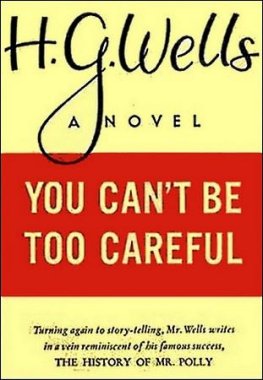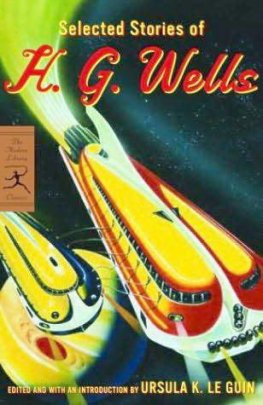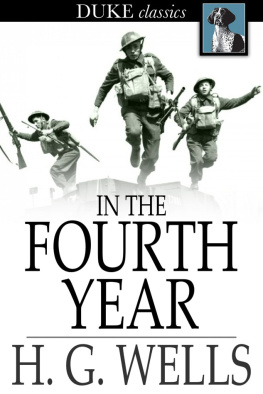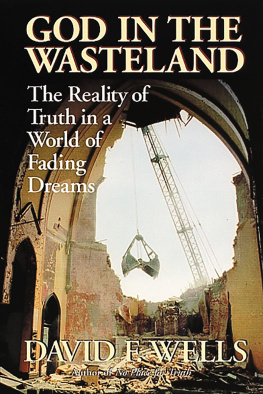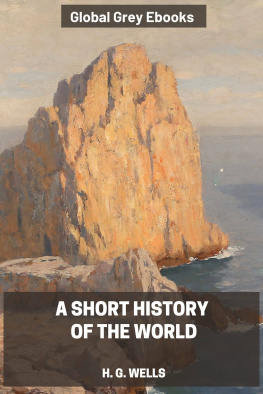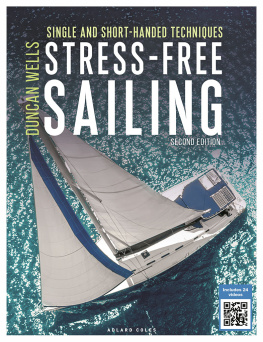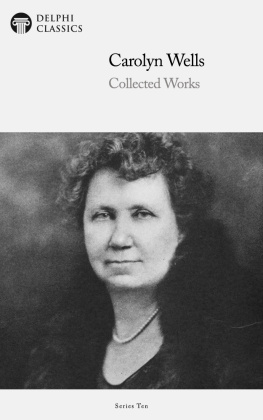H. Wells - The World Set Free
Here you can read online H. Wells - The World Set Free full text of the book (entire story) in english for free. Download pdf and epub, get meaning, cover and reviews about this ebook. genre: Prose. Description of the work, (preface) as well as reviews are available. Best literature library LitArk.com created for fans of good reading and offers a wide selection of genres:
Romance novel
Science fiction
Adventure
Detective
Science
History
Home and family
Prose
Art
Politics
Computer
Non-fiction
Religion
Business
Children
Humor
Choose a favorite category and find really read worthwhile books. Enjoy immersion in the world of imagination, feel the emotions of the characters or learn something new for yourself, make an fascinating discovery.

The World Set Free: summary, description and annotation
We offer to read an annotation, description, summary or preface (depends on what the author of the book "The World Set Free" wrote himself). If you haven't found the necessary information about the book — write in the comments, we will try to find it.
The World Set Free — read online for free the complete book (whole text) full work
Below is the text of the book, divided by pages. System saving the place of the last page read, allows you to conveniently read the book "The World Set Free" online for free, without having to search again every time where you left off. Put a bookmark, and you can go to the page where you finished reading at any time.
Font size:
Interval:
Bookmark:
H.G. Wells
The World Set Free
by
WE ARE
ALL THINGS THAT
MAKE AND PASS,
STRIVING UPON A
HIDDEN MISSION,
OUT TO THE
OPEN
SEA.
THE WORLD SET FREE
H.G. WELLS
TO
FREDERICK SODDY'S
'INTERPRETATION OF RADIUM'
THIS STORY, WHICH OWES LONG PASSAGES
TO THE ELEVENTH CHAPTER OF
THAT BOOK, ACKNOWLEDGES
AND INSCRIBES
ITSELF
PREFACE
THE WORLD SET FREE was written in 1913 and published early in
1914, and it is the latest of a series of three fantasias of
possibility, stories which all turn on the possible developments
in the future of some contemporary force or group of forces. The
World Set Free was written under the immediate shadow of the
Great War. Every intelligent person in the world that
disaster was impending and no way of averting it, but few of
us realised in the earlier half of 1914 how near the crash was to
us. The reader will be amused to find that here it is put off
until the year 1956. He may naturally want to the reason
for what will seem now a quite extraordinary delay. As a
prophet, the author must confess he has always been inclined to
be rather a slow prophet. The war aeroplane in the world of
, for example, beat the forecast in Anticipations by about
twenty years or so. I suppose a not to shock the sceptical
reader's sense of use and wont and perhaps a less creditable
to hedge, have something to do with this dating
forward of one's main events, but in the particular case of The
World Set Free there was, I , another motive in holding the
Great War back, and that was to allow the chemist to get well
forward with his discovery of the release of atomic energy.
1956-or for that matter 2056-may be none too late for that
crowning revolution in human potentialities. And apart from this
procrastination of over forty years, the guess at the opening
phase of the war was fairly lucky; the forecast of an alliance of
the Central Empires, the opening campaign through the
Netherlands, and the despatch of the British Expeditionary Force
were all justified before the book had been published six months.
And the opening section of Chapter the Second remains now, after
the has happened, a fairly adequate diagnosis of the
essentials of the matter. One hit (in Chapter the Second,
Section 2), on which the writer may congratulate , is the
forecast that under modern it would be quite
impossible for any great general to emerge to supremacy and
concentrate the enthusiasm of the armies of either side. There
could be no Alexanders or Napoleons. And we soon the
scientific corps muttering, 'These old fools,' exactly as it is
here foretold.
These, however, are small details, and the misses in the story
far outnumber the hits. It is the main thesis which is still of
interest now; the thesis that because of the development of
scientific and separate
sovereign empires are no longer possible in the world, that to
attempt to keep on with the old system is to heap disaster upon
disaster for mankind and perhaps to destroy our race altogether.
The remaining interest of this book now is the sustained validity
of this thesis and the discussion of the possible ending of war
on the earth. I have supposed a sort of epidemic of sanity to
break out among the rulers of and the leaders of mankind.
I have represented the native common sense of the French and
of the English mind-for manifestly King Egbert is meant to be
'God's Englishman'-leading mankind towards a bold and resolute
effort of salvage and reconstruction. Instead of which, as the
school book footnotes say, compare to-day's newspaper. Instead
of a frank and honourable gathering of leading men, Englishman
meeting German and Frenchman Russian, brothers in their offences
and in their disaster, upon the hills of Brissago, beheld in
Geneva at the other end of Switzerland a poor little League of
(Allied) Nations (excluding the United States, Russia, and most
of the 'subject peoples' of the world), meeting obscurely amidst
a world-wide disregard to make impotent gestures at the leading
problems of the debacle. Either the disaster has not been vast
enough yet or it has not been swift enough to inflict the
necessary moral shock and achieve the necessary moral revulsion.
Just as the world of 1913 was used to an increasing prosperity
and that increase would go on for ever, so now it would
seem the world is accustomed to a steady glide towards
social disintegration, and that that too can go on
and never come to a final bump. So soon do use and
wont establish , and the most flaming and thunderous of
lessons pale into disregard.
The question whether a Leblanc is still possible, the question
whether it is still possible to bring about an outbreak of
creative sanity in mankind, to avert this steady glide to
destruction, is now one of the most urgent in the world. It is
clear that the writer is temperamentally to hope that
there is such a possibility. But he has to confess that he
few signs of any such breadth of and steadfastness
of will as an effort to turn the rush of human affairs
demands. The inertia of dead ideas and old institutions carries
us on towards the rapids. Only in one direction is there any
plain recognition of the idea of a human commonweal as something
overriding any national and patriotic consideration, and that is
in the working class movement throughout the world. And labour
internationalism is closely bound up with conceptions of a
profound social revolution. If world peace is to be
through labour internationalism, it will have to be at
the price of the completest social and economic reconstruction
and by passing through a phase of revolution that will certainly
be violent, that may be very bloody, which may be prolonged
through a long period, and may in the end fail to achieve
anything but social destruction. Nevertheless, the fact remains
that it is in the labour class, and the labour class , that
any conception of a world rule and a world peace has so far
appeared. The of highly
educated and highly favoured leading and ruling men, voluntarily
setting to the task of reshaping the world, has thus
far remained a .
H. G. WELLS.
EASTON GLEBE,
DUNMOW, 1921.
CONTENTS
PRELUDE
THE SUN SNARERS
CHAPTER THE FIRST
THE NEW SOURCE OF ENERGY
CHAPTER THE SECOND
THE LAST WAR
CHAPTER THE THIRD
THE ENDING OF WAR
CHAPTER THE FOURTH
THE NEW PHASE
CHAPTER THE FIFTH
THE LAST DAYS OF MARCUS KARENIN
PRELUDE
THE SUN SNARERS
Section I
THE history of mankind is the history of the of
external power. Man is the tool-using, fire-making animal. From
the outset of his terrestrial career we find him supplementing
the natural strength and bodily weapons of a beast by the heat of
burning and the rough implement of stone. So he passed beyond
the ape. From that he expands. Presently he added to the
power of the horse and the ox, he borrowed the carrying strength
of water and the driving force of the wind, he quickened his fire
by blowing, and his simple tools, pointed first with copper and
then with iron, increased and varied and became more elaborate
and efficient. He sheltered his heat in houses and made his way
Font size:
Interval:
Bookmark:
Similar books «The World Set Free»
Look at similar books to The World Set Free. We have selected literature similar in name and meaning in the hope of providing readers with more options to find new, interesting, not yet read works.
Discussion, reviews of the book The World Set Free and just readers' own opinions. Leave your comments, write what you think about the work, its meaning or the main characters. Specify what exactly you liked and what you didn't like, and why you think so.

